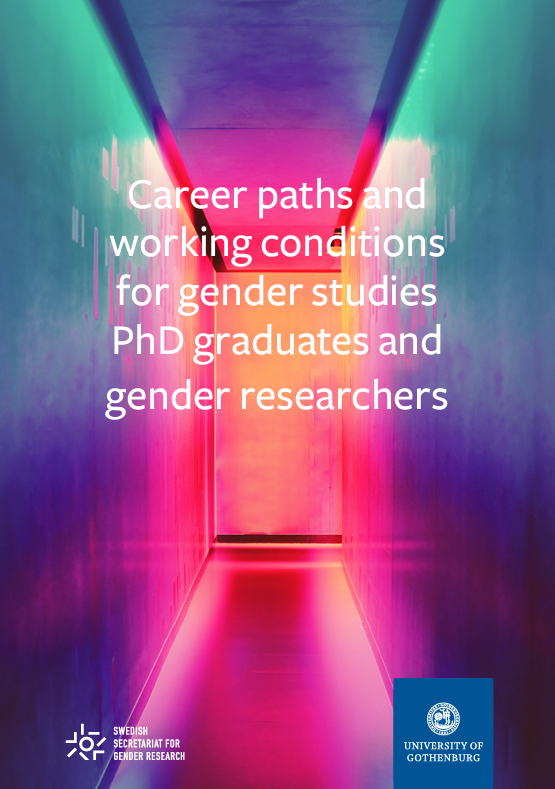Conditions and career paths for gender researchers
What do the career paths look like for researchers in Sweden with a PhD in Gender Studies and for subject-integrated gender researchers? A study is carried out, starting in 2021.
Gender Studies is relatively new in Sweden, and it was not until the start of the 2000s that it became possible to study the subject at doctoral level. On the other hand, courses in the subject have been available at educational institutions in Sweden since the 1970s.
Gender Studies is an interdisciplinary subject, which means that the disciplinary identity for the individual researcher can be unclear, compared with those with a PhD in a traditional subject. Gender research centers are still relatively small and there are few permanent positions. All of this means that the future prospects of a researcher who has recently successfully defended their doctoral thesis in Gender Studies may seem uncertain. There are now around 50 researchers in Sweden with a PhD in Gender Studies. What do their career paths look like?
Another group is those who are usually referred to as subject-integrated gender researchers. Their research has a gender perspective but their PhD may have been in areas as disparate as Medicine, Political Science and Literary Studies. There are many more of these researchers in Sweden than Gender Studies researchers, but they too can experience challenges in identifying and shaping their career path.
A previous study, Genusvetarnas framtid (The Future of Gender Studies students), focused on students and their position in the job market after completion of a Gender Studies programme. The students had succeeded in positioning themselves in a broad range of roles in the job market and often reported that their knowledge of Gender Studies had been of great benefit. However, we know little about career paths for those who have a PhD in the subject in Sweden.
The Swedish Secretariat for Gender Research has therefore been carrying out a study of the career paths of those who have achieved a doctorate in Gender Studies and of subject-integrated gender researchers, both within and outside academia. The study also incorporates a review of the funding situation in the field.
First part of the project: Questionnaire
A questionnaire about career paths was sent out in 2021, to investigate issues such as grade of appointment, access to qualifying positions and research funds. The survey consisted of two questionnaires, one for PhDs in gender studies and one for subject-integrated gender researchers. Subject-integrated gender researchers were found through the database GENA, while researchers with a PhD in Gender Studies were found at respective universities.
Second part of the project: Focus groups
A qualitative part of the survey has looked into how representatives of the gender research field have experienced the institutionalisation of Gender Studies and the opportunities for career progression within the wider field of gender research. Concepts that have been important in the emergence of Gender Studies, such as interdisciplinarity and critique of society and science, were investigated in relation to day-to-day activity.
Target groups for the study
For those who are planning, have just started, are completing or have just completed a doctorate in Gender Studies or who have written a thesis with a gender perspective, mapping the career paths of people who have achieved their doctorate can help provide information that is important for career planning.
Another important addressee for the study could be research funders who need a greater understanding of the funding situation in the field of gender research, and others include those involved in research policy, i.e. agencies and authorities, politicians and trade unions.
We cooperate with
The study has been undertaken in partnership with representatives from Sveriges genusforskarförbund (SGF – the Swedish Association for Gender Researchers), Ämnesföreningen för genusvetenskap (ÄG – the National Association for Gender Studies) and the Secretariat’s Nordic sister organisation Kilden.
